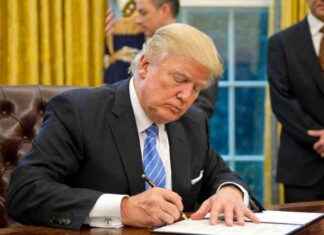A planned global agreement to better protect fish stocks has failed for the time being. The trade ministers of the 166 member countries of the World Trade Organization (WTO) were unable to agree on joint measures in Abu Dhabi.
Only a minimal consensus was reached on the moratorium on tariffs for electronic transmissions: the countries agreed not to continue to raise such tariffs for the time being, but only until March 31, 2026 at the most. The German industry would have liked the practice, which has been common since 1998, to be without tariffs is set as the standard once and for all. The next WTO ministerial conference will take place in Cameroon, Africa, in 2026. A new decision would then have to be made.
The fisheries agreement should have curbed any subsidies that lead to overfishing or overcapacity. On the one hand, this is intended to protect fish stocks and, on the other hand, to prevent more and more boats from being built and used. It would have complemented an agreement reached in 2022 that only addressed the worst forms of subsidies.
“Unfortunately, there was no happy ending in the poker between industrialized and developing countries,” said Anna Holl-Buhl, a fishing expert at the WWF Environmental Foundation. “The result of the negotiations is de facto a license to continue the overexploitation of the seas.”
Negotiations continue
In the hope of reaching an agreement, the conference, which was actually only scheduled to last until Thursday, was extended several times, but ultimately in vain. The difficulty is that the WTO’s now 166 countries always decide unanimously. So each country effectively has a veto. The European Union is negotiating as a bloc for all 27 member states.
“In the long hours of negotiations, we saw difficult but also profitable cooperation,” said WTO Director General Ngozi Okonjo-Iweala at the end. But it wasn’t enough. Negotiations will now continue at the organization’s headquarters in Geneva.
Even before the conference began, it was clear that another issue close to the hearts of German business would not make progress: the restoration of the dispute resolution system. It has been partially blocked for four years because the US is preventing the appointment of appeals judges. They demand extensive WTO reforms, for which there is currently no majority.












